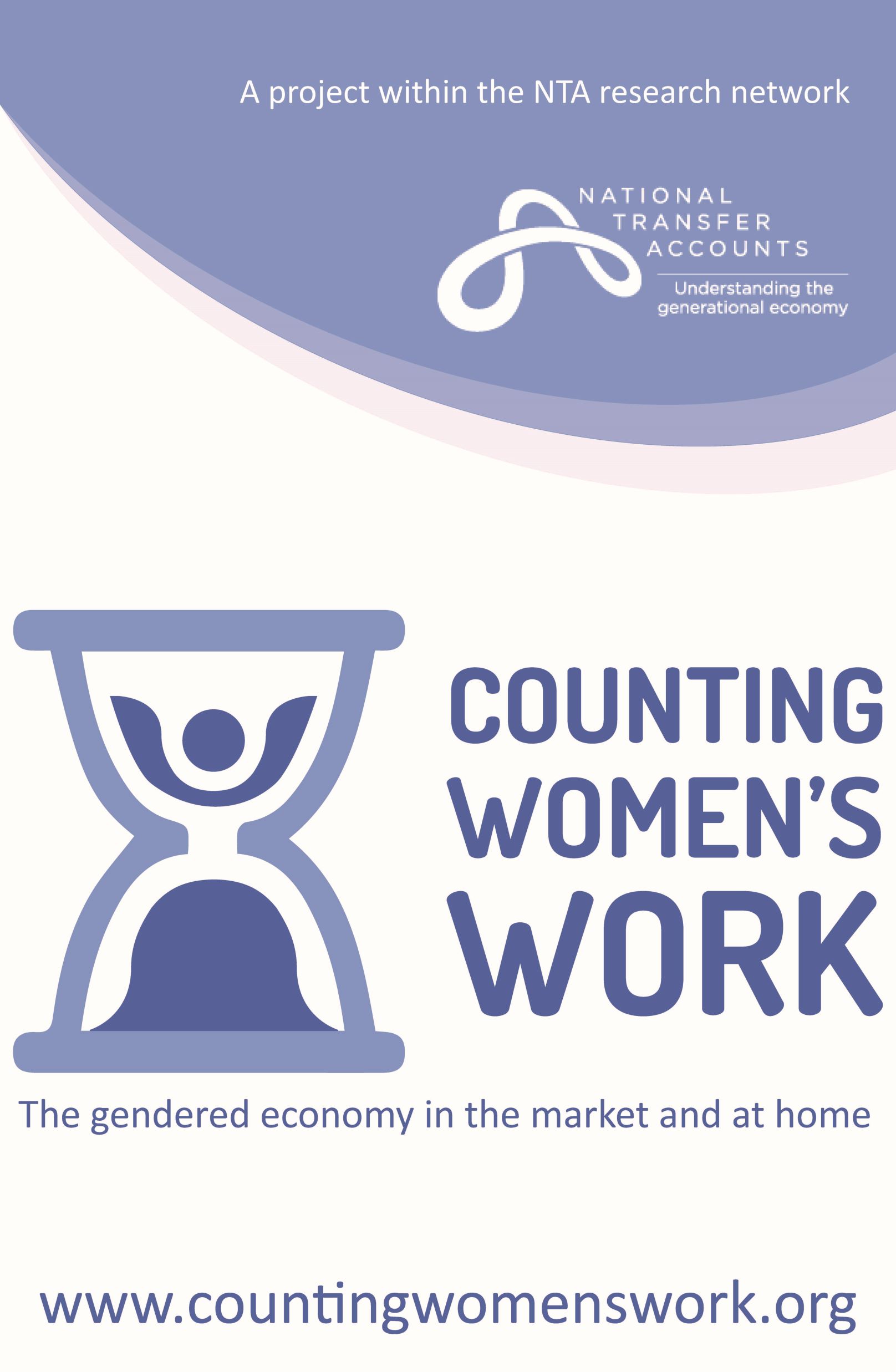Unpaid care work and the gender dividend in El Salvador
New publication from El Salvador NTA team of Werner Peña, Adriana Vides, and María Elena Rivera: “Trabajo productivo no remunerado y dividendo de género en El Salvador“ (Unpaid productive work and the gender dividend in El Salvador) in January 2020 edition of Notas de Población. In Spanish.
Werner Peña, Adriana Vides, María Elena Rivera, 2020. “Trabajo productivo no remunerado y dividendo de género en El Salvador”. Notas de Población, 109. January 2020. In Spanish.
ABSTRACT:
This article uses National Transfer Accounts (NTAs) and National Time Transfer Accounts (NTTAs) to highlight the contribution made to the economy by unpaid productive work, and to show how this relates to the gender dividend in El Salvador. As NTAs do not record unpaid domestic work or care activities, they underestimate the economic contributions made by those who mostly perform these tasks, namely women. To remedy this omission, NTTAs are used to estimate the production, consumption and time transfer of unpaid production and care work. A hypothetical scenario is configured to estimate the gender dividend that would be obtained from an increase in women’s labour market participation, which would enable El Salvador to exploit the demographic dividend more effectively. It is recommended that ways be found to meet the demand for care resulting from such a scenario.
Time Use and Transfers in the Americas - Producing, Consuming, and Sharing Time Across Generations and Genders
CWW researchers published Time Use and Transfers in the Americas: Producing, Consuming, and Sharing Time Across Generations and Genders, featuring chapters on National Time Transfer Accounts methodology, results from Costa Rica, Uruguay, Colombia, and the United States, as well as cross-country comparative work.
Urdinola, B.P. and Tovar, J.A., 2019. Time Use and Transfers in the Americas. Springer International Publishing.
About this book:
This book provides a comparison of the measurement in time and monetary units of unpaid domestic work in Colombia, Costa Rica, Uruguay, and the Hispanic ethnicity in the United States. A standardized technique allows the development of comparable estimates across countries per age and gender which reveal specific behavioral patterns over the life cycle. A mixture of economic conditions, social norms, and demographic trends provide insightful explanations for the unequal burden that women and girls carry when dealing with unpaid domestic activities, an economically significant but traditionally neglected activity. As such, the book is of interested to practitioners in all social sciences, particularly sociologists, demographers, economists, and policymakers.
Infographic, Uruguay
CWW infographics summarize the market-based and unpaid care work economy in a country. This post shows the infographic for Uruguay.
Counting Women’s Work estimates of the market and unpaid care work economies can be summarized with a series of statistics. CWW produces infographics to show these results. Infographics are available with a dark or light background. The infographic for Uruguay is shown below.
All infographics are licensed under a Creative Commons Attribution-NonCommercial 4.0 International License.
Symposium on Gender Gaps in National Transfer Accounts and National Time Transfer Accounts
Counting Women's Work collaborated with a task force on Gender Economic Equity to make sure that discussions of women’s economic empowerment included evidence from both the market and household economies.
Researchers, representatives from international organizations, members of the government of Colombia, media, students, and other interested parties met in Bogotá, Colombia on February 28, 2018 to share results from NTA and CWW researchers and learn about the challenges and concerns of various stakeholders around issues of inequality and transfers of money and time.
The event was organized by the CWW Colombia team including Dr. B. Piedad Urdinola, of the Universidad Nacional de Colombia-Bogotá, and Dr. Jorge A. Tovar of the Universidad de los Andes-Bogotá, and featured their research on Colombia as well as cross-country comparative work from other CWW researchers, and personnel of the United Nations, and of Colombian universities and government representatives.
The event was sponsored by the United Nations Population Fund, the Departamento Nacional de Planeación of Colombia, Universidad Nacional de Colombia, Universidad los Andes, National Transfers Accounts, and Counting Women’s Work.
Click the links below to access video of the presentation and discussions:
Presentation slides for each speaker can be accessed below:
Alejandra Corchuelo (download)
Symposium on valuing time use in Colombia
Counting Women's Work’s Colombia team help a symposium with results from the Colombian research. They were joined by other CWW personnel and other regional experts. The seminar took place on June 1, 2016, at Auditorio Juan Herkrath Muller-Facultad de Ciencias, Universidad Nacional de Colombia-Bogotá.
B. Piedad Urdinola and Jorge Tovar, co-directors of the National Time Transfer Accounts/Counting Women's Work research for Colombia, discussed results from the Colombian research. They were joined by other CWW personnel and other regional experts. The seminar took place from 8am to 1pm on June 1, 2016, at Auditorio Juan Herkrath Muller-Facultad de Ciencias, Universidad Nacional de Colombia-Bogotá.
The agenda can be downloaded here.
The video recording of the event can be viewed here.
Speakers for the event were:
Gretchen Donehower, U.C. Berkeley (presentation)
Edgar Marcillo, Departamento Nacional de Planeación-DNP (presentation)
Pamela Jiménez Fontana, Centro Centroamericano de Población/Programa Estado de la Nación (presentation)
B. Piedad Urdinola, Universidad Nacional de Colombia-Bogotá (presentation)
Estela Rivero, Investigación en Salud y Demografía-INSAD (presentation)
Néstor González, Departamento Nacional de Planeación-DNP
Iván Piraquive, Departamento Administrativo Nacional de Estadística-DANE (presentation)
The event flyers can be downloaded here (detailed) or here (overview).
Latin America Training
The Counting Women's Work training workshop for Latin American teams was held as a side meeting at the Sixth Congress of ALAP.
The Counting Women's Work training workshop for Latin American teams was held as a side meeting at the Sixth Congress of ALAP (La Asociacion Latinoamericana de Poblacion / Latin American Population Association) at the Pontificia Universidad Catolica del Peru, Lima, from 11 to 13 August 2014. Latin American CWW country teams, as well as other country teams interested in the CWW research, attended. These include teams and representatives from Chile, Colombia, Costa Rica, El Salvador, and Mexico. The slides used in the workshop are linked below.
Day 1: National Transfer Accounts by Sex
Day 2: National Time Transfer Accounts - Production
Categories
Tags
- Africa 3
- Asia 3
- Audio 2
- Brazil 1
- Burkina Faso 2
- Colombia 10
- Costa Rica 10
- Covid19 2
- Cross-country 19
- El Salvador 1
- Europe 5
- Example Code 1
- Fertility 2
- Gender Dividends 3
- Ghana 4
- Hispanic ethnicity 1
- Human Capital 1
- Hungary 1
- India 3
- Kenya 2
- Latin America 7
- Mauritius 2
- Methodology 6
- Mexico 4
- Policy-related 10
- Senegal 5
- Slides 10
- Slovenia 1
- South Africa 9
- South Korea 2
- Spain 2
- Spanish language 4
- Turkey 1
- United States 3
- Uruguay 2
- Video 7
- Vietnam 4
- Web Conference 4
















